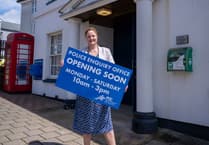Memory cafés across Devon are appealing for more volunteers and public support to help expand their services and reach the many thousands of people estimated to be living with dementia without adequate support.
Devon is a dementia hotspot, with some of the highest prevalence in the UK. There are now 52 memory cafés across the county offering regular gatherings of people living with dementia and their Carers. However, the need for such community-based services is also rising fast.
'With the government care sector and the NHS both stretched to the limit, community-based services like Memory Cafés offer a lifeline to many people, who otherwise become isolated,' said Maggie Bonnell, Manager at KingsCare League of Friends based in Kingsteignton.
Dementia at present affects 944,000 people across the UK; a figure which is predicted to rise sharply in the coming decades to 1.5 million by 2050. There is, as yet, no cure and many people go undiagnosed, preferring to stay hidden for fear of stigma.
Memory cafés are community organised safe, welcoming spaces where people living with dementia and their family Carers can meet each other, make friends, share experiences and relax without fear of being misunderstood. The memory café is often the first place that people visit after being diagnosed, and it also offers signposting to other community and government services.
The members of Kingsteignton’s Memory Café didn’t miss out on the coronation fun over the weekend, hosting their very own street party at the United Reformed Church Hall.
Even Tuesday’s rain couldn’t dampen the spirits of the party, complete with a classic all-British buffet, a Union Jack cake and tea all around.
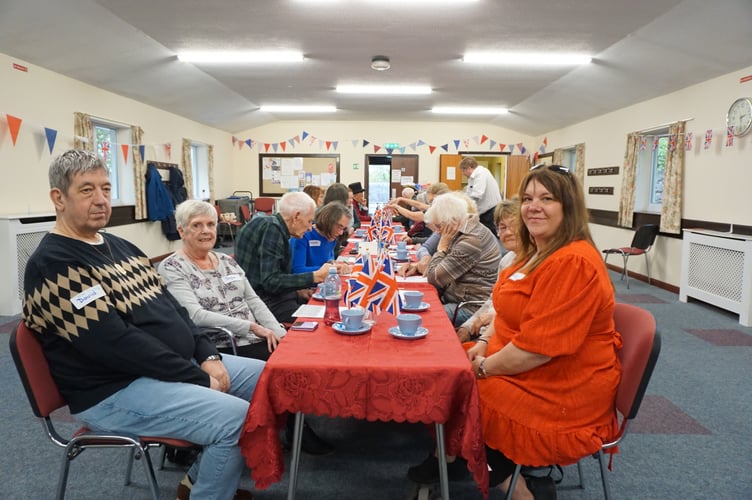
Founded by the charity Kings Care, the Kingsteignton Memory Café started its life in November last year, following the immense success of its counterpart, the Newton Abbot Memory Café.
The Café offers a friendly place to meet others living with memory loss, whether diagnosed or not, along with their carers.
Jackie Milan works at Kings Care and is one of the key organisers of the Memory Café. Jackie said: ‘The Newton Abbot Memory Café was getting busier and busier, so it was a case of organising one here as well.
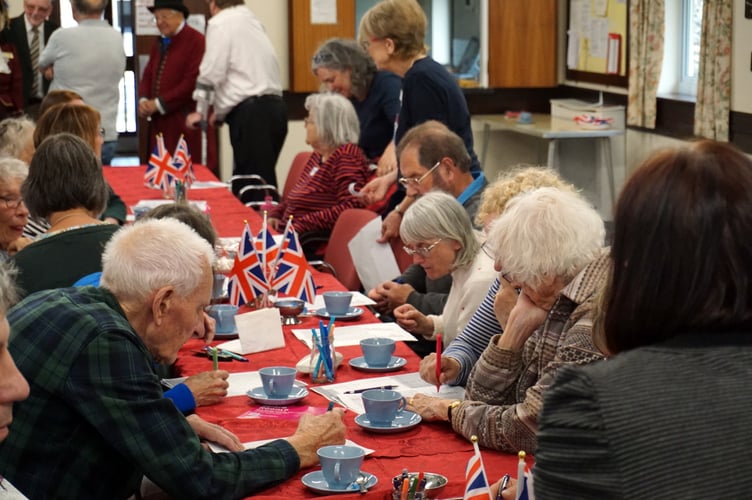
‘We try to make this café a little quieter and smaller, and do something different every month, with a slightly different theme. Sometimes we get speakers, sometimes we watch films together, hopefully music, we vary it as much as possible.
‘The aim of the café is, of course, to stimulate people who have memory problems to help them retain or regain memories. It’s also to give the carer a break as well.
‘The space here is lovely and perfect for what we need, so we’re grateful for that as well.’
Halfway through the party, the children from St Micheal’s CofE School arrived to sing a variety of songs, from old favourites to future classics, all arranged by teacher Miss Bray.
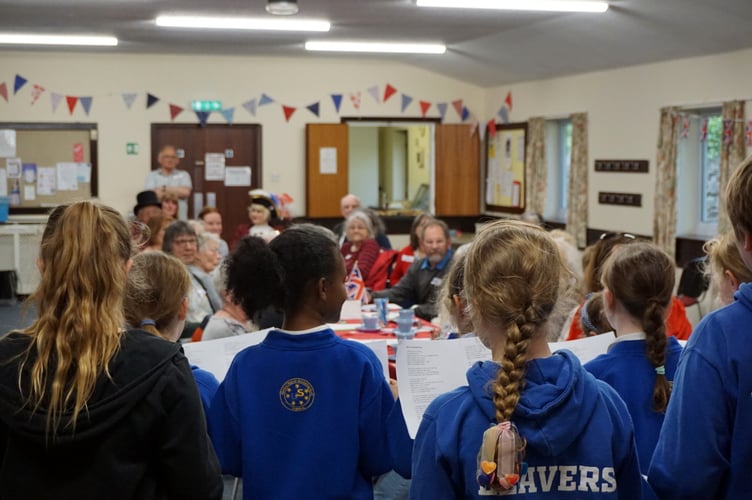
‘The party’s gone really well,’ Jackie added, ‘but we’re always looking for new volunteers.’
Most memory cafés are run largely by volunteers and need a wide range of people from all generations to keep their doors open. Help they need includes chatting with guests, making cakes, tea and coffee, driving people to and from the cafés, raising funds and organising activities.
‘Being a volunteer can be immensely rewarding, knowing we are helping reduce the isolation that many older people feel, and it’s fun’ said Liz, one of the Memory Café’s volunteers.
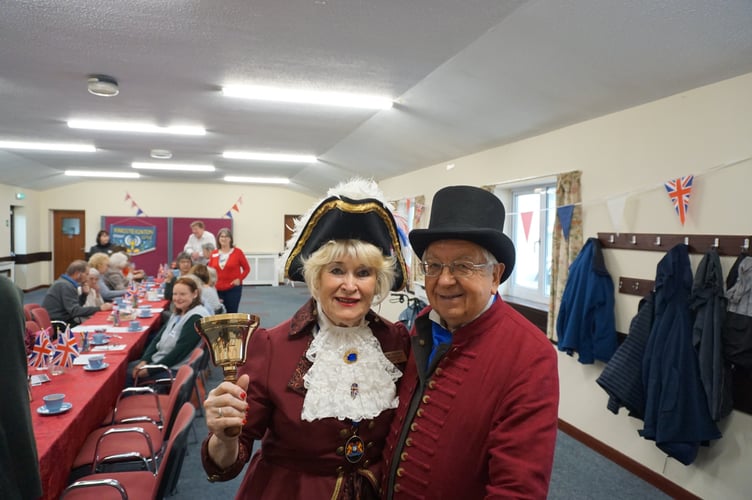
Both Newton Abbot and Kingsteignton memory cafés run monthly. If you would like to help, contact KingsCare League of Friends on 01626 357090.
While Alzheimer’s disease has no cure, two new medicines have recently been shown in clinical trials to significantly slow its progression. It is hoped that these could become available in the UK in 2024. They are most effective in early stages of the illness, requiring a huge change in the way dementia is diagnosed.
Jackie said: 'Currently in Devon only around 55% of those living with dementia are actually diagnosed. We need a massive effort to change the way this happens and improve diagnosis rates to help those who can benefit the most from new treatments now in the pipeline. Community based organisation like memory cafés, have an important role to play in this.'




